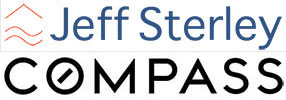If you are looking at homes for sale in Marin County, CA, you may have some questions. This is a large investment, and you want to make sure you are getting the right home for your needs. Our team at Homes of Marin has compiled a list of our most frequently asked questions from homebuyers in the area.
Buyer FAQs
Why buy?
There are many reasons to purchase a home. Some of these reasons include:
- Pride of Ownership
- Appreciation
- Mortgage Interest Deductions
- Property Tax Deductions
- Capital Gain Exclusion
- Preferential Tax Treatment
- Mortgage Reduction Builds Equity
- Equity Loans
How do I find a lender?
Much like the search for your real estate agent, it’s important to find a lender who will best work with you toward your goal.
Some of the best resources are:
- Recommendations from friends
- References from your real estate broker
- Internet reviews and ratings
- Company or industry awards
- Contact Jeff for more information
How much home can I afford?
This will be determined by a number of factors, such as:
- Your credit score and history
- Funds for a down payment and/or closing costs
- Your annual income
- Your existing financial obligations and outstanding credit
- Preference for at least 2 years in the same line of work
Once established, your home purchase price range will combine your down payment and your maximum mortgage amount.
Why is credit important? How do I find my credit (FICO) score?
A responsible history of handling prior debts acts in your favor when asking to borrow funds for your home. Your credit score could impact the kind of mortgage program you qualify for.
Additionally, your credit can determine :
- The amount required for a down payment
- The amount you can borrow in relation to your income
- The interest rate you qualify for
Don’t be dissuaded if you have negative history on your credit report. This does not always mean that you can’t get a mortgage.
No matter how early in the process, monitoring your credit is a positive step. To obtain your free annual credit report, visit the government site AnnualCreditReport.com.
Do not use services that ask for your payment information. Speak with Jeff if you would like to discuss more options.
How much do I need to have saved for a down payment?
In Marin County, the down payment is often 20-25% of the home’s value. That said, there are down payment assistance programs that may be used. With these, you could pay little to no down payment obligation. An important note if you choose to do this, is that typically mortgage insurance will be required.
Should I wait for the right time?
While the market may go down while you wait for the best time, there is no guarantee it will. There is also no guarantee that the home you desire, or the neighborhood you want to move to, will have what you are looking for at that time.
If you purchase and keep the property for at least 3 years, between the write-off on taxes and your peace of mind you receive from being settled, you’ll come out ahead.
What are the closing costs, and how much should I expect?
Generally, Marin closing costs are between 1%-2% of the home purchase price.
Closing costs vary, but typically include:
- Lender fees: Your mortgage company may charge fees for processing your loan. These can include charges for your appraisal, pulling your credit report, origination points, and discount points.
- Third-party fees: These can include the settlement fee, title insurance, and attorney’s fees.
- Prepaid items: Certain costs must be paid to your lender in advance. These are frequently comprised of pre-paid interest, hazard insurance, and a deposit to set up your escrow account. Some of these can be financed.
How large of a loan can I get?
Lenders will factor a list of items while determining your eligibility and debt-to-income ratio. These include:
- Income, type of work and how stable your employment is
- Whether you are planning to co-borrow
- Both your debts and your savings
- Your credit history
- Whether anyone will sign to guarantee your loan if you are unable to pay
- The value of the property
Once you have learned what you qualify for, it is for you to decide how much you are comfortable with financing.
Is there an average down payment or mortgage size?
Due to the variety of personal factors, there is no one size fits all.
The amount and rate you are qualified for, combined with the monthly payment amount you are comfortable with, help to determine your down payment. Also potentially a factor is your age and future earning potential. Generally speaking, banks prefer 20-25% down payments, but many will work with as little as 3%.
What do mortgage payments include?
Usually, your monthly mortgage payment is made up of four amounts:
- Principal
- Interest
- Taxes
- Insurance
What is an escrow account, and how does it work?
An escrow account is a neutral account providing fund access to specific third parties for the processing of your transaction. One such third party is title companies, who handle the legal transfer of all funds and loan documents associated with a transaction. First time home buyers may receive a discount.
Which type of loan should I get?
Not every loan is best for every situation. It’s important to speak to a mortgage advisor about your plans and priorities. Ask them for a Good Faith Estimate (GFE) to get an idea about the types of loans that they offer.
Review our [Mortgage Section] for clarification on different types of loans. Contact Jeff for references on Marin advisors.
When I find the right home, how much should I offer?
It is best to speak with your real estate professional regarding your specific situation. Jeff has an incredible amount of experience tailoring offers to the situation, property, and market. Please feel free to for an opinion regarding any specific home or area in Marin County.
When your agent is pricing your home, make sure to ask:
- What are comparable homes asking? What have similar homes been selling for?
- What is the home’s condition?
- How long has it been on the market?
- Have they reduced in price?
- How much you can afford?
- How much do you want this home?
What happens if my offer is rejected?
Rejection is often an invitation to negotiate. This can be one of the best times to have a real estate professional in your arsenal. With Jeff, the option is not always to add more money. Instead, we can ask the seller to cover some expected repairs and/or closing costs. This can be incorporated into another offer. Negotiations can frequently go back and forth a few times before a final deal is reached.
What is a “Pre-Approval”?
“Pre-approvals” are given by meeting with a lender, having your credit files reviewed, and the officer stating that you can readily qualify for an amount using one or more mortgage programs. They will provide you with an approval letter that shows your purchasing power.
Will I have to pay Private Mortgage Insurance (PMI)?
PMI is usually required when the mortgage amount is higher than 80% of the home’s value. If you start a loan using Mortgage Insurance, you can refinance to remove it after you’ve built at least 20% equity. Contact Jeff for advice and questions.
Should I pay discount points/“buy down” my rate?
Prepaid interest, or discount points, can be paid to your lender at closing in exchange for a lower interest rate on your mortgage. Important in making your decision is how long you plan on living in your home, and finances. For a further discussion, contact your lender or Jeff.
What is best; adjustable rate or fixed loans?
First, let’s discuss what these are.
The interest rate on fixed-rate mortgages never changes. Your payments are the same throughout the life of the loan. Adjustable-rate mortgages (ARMs) have an interest rate that changes at regular intervals. These changes are based on a market index and a pre-determined formula that is applied to it.
When rates are low, it’s generally best to choose a fixed-rate mortgage if you plan to stay in your home long term. Selecting an ARM can make more sense if you are planning to stay in your home short-term and/or rates are high.
Should I lock in my mortgage rate?
This depends on both where the market is, and where it’s expected to be in the future. If rates are rising it is usually a good idea to lock in the current rate. This is difficult to predict, though, as no one knows for sure which direction interest rates will go.
Be on the lookout for news from the Federal Reserve Board, as their policies will affect mortgage rates.
Please note that if rates drop during the lock-in period you are not allowed to switch to the lower rate.
How and where can I start my search?
Jeff has streamlined this experience for you. Here, you can easily browse by community. Our users also have the ability to create a login and password and save their searches and preferences. For more personalization, contact Jeff with features and specifics for your search.
I have poor credit. How long does it take to turn this around?
This can vary depending on the type of marks to your credit.
A bankruptcy remains in your record for 10 years.
Bills that go to collections remain on your credit 7 years.
The effect of negative marks on your credit decreases over time. Do not get yourself down, thinking you have to wait for 10 years before you can buy a home. It’s important to be aware of your credit score and to take steps to improve it, even before you need it. This can help to ensure that you are prepared for the best rate once you are ready.
Can I get a loan?
Contact Jeff to get set up with the right advisor for you. Even 100% financing could be available.


